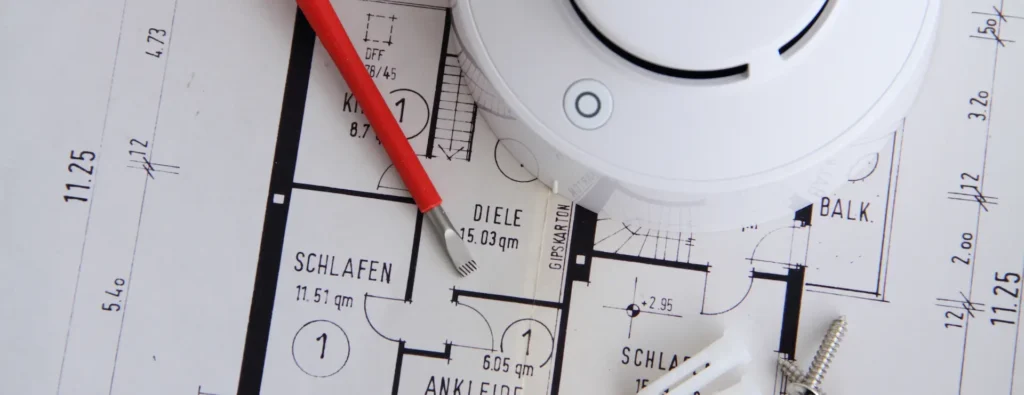Proper smoke alarm installations for all properties required to be compliant with legal standards in Queensland. Whether you own a rental property, commercial space, or residential home, understanding the legal requirements is essential. This article will outline the specific legislation for different property types, optional aspects of smoke alarm installations, licensing requirements, and maintenance schedules.
Legislation Specifically For Rental Properties
In Queensland, rental properties are subject to strict smoke alarm regulations. As of 1 January 2022, all rental properties must have interconnected photoelectric smoke alarms installed. These alarms should be located in every bedroom, in hallways that connect bedrooms with the rest of the property, and on each level of the property. The alarms must comply with Australian Standard 3786-2014.
Landlords are responsible for ensuring that smoke alarms are installed correctly before the start of a tenancy. Additionally, they must ensure the alarms are tested and maintained in good working order. Tenants, on the other hand, are required to replace batteries as needed during their tenancy.
Legislation For Other Property Types
For owner-occupied homes and commercial properties, the rules also require compliance with Australian Standard 3786-2014. While owner-occupied homes have until 1 January 2027 to upgrade to interconnected photoelectric smoke alarms, it’s highly recommended to upgrade as soon as possible for safety reasons.
Commercial properties must adhere to specific guidelines based on the type of business and building classification. It is important for commercial property owners to consult with licensed professionals to ensure their smoke alarm systems meet all relevant requirements.

Optional Aspects Of Smoke Alarm Installations
While the law mandates certain smoke alarm installations, there are optional aspects that can enhance safety. For example, integrating smoke alarms with a security system can provide additional protection. Some property owners also opt for alarms with a 10-year sealed battery, reducing the need for frequent maintenance.
Additionally, installing smoke alarms in living areas and kitchens can provide extra early warning in case of a fire, even though it’s not legally required.
Licensing Requirements For Smoke Alarm Installations
In Queensland, smoke alarm installations must be carried out by licensed electricians. This ensures that the alarms are installed correctly and comply with all relevant safety standards. Property owners should always check the credentials of anyone hired to install or service smoke alarms to avoid potential legal issues.
It’s also worth noting that unlicensed installations can lead to penalties, and in the event of a fire, insurance claims may be affected if alarms were not installed by a licensed professional.
Maintenance Schedule For Smoke Alarms
Maintaining smoke alarms is a critical part of ensuring they function correctly when needed. In rental properties, landlords are required to test and clean the smoke alarms within 30 days before the start of a new tenancy or lease renewal. Batteries should be replaced as necessary, and any faulty alarms must be replaced immediately.
For all property types, it’s recommended to test smoke alarms monthly by pressing the test button. Cleaning should be done every six months to remove dust and debris. It’s also advisable to replace smoke alarms every 10 years to ensure they remain effective.